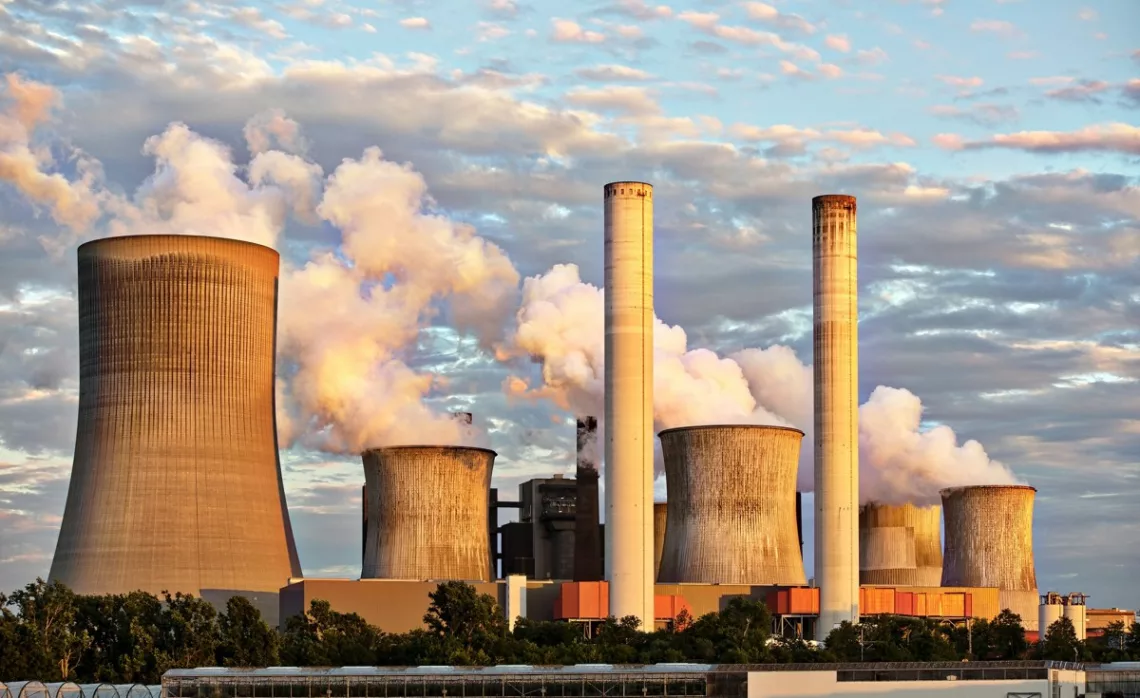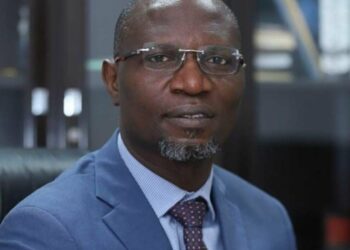Current events and key industry collaborations appear to be clearing the path for exponential investment in clean energy space by the federal government with huge savings for the business sector.
The Rural Electrification Agency (REA), a government agency under the ministry of power said Nigerians and their businesses spend almost $14billion (N6.4trillion) annually on inefficient grid electricity generation that is expensive ($0.30/kWh or N140/kWh or more based on current official US Dollar rate to Naira =N460.00), of poor quality power, noisy, and polluting.
Experts are of the view that in a country with a weak national grid, the market opportunities lie in developing off-grid alternatives to complement the fledgling national grid.
According to a study by the Rocky Mountain Institute and REA, supported by the Rockefeller Foundation, providing energy access could create a $9.2 billion a year (N4.3 trillion/year) market opportunity for mini grids and solar home systems that will save $4.4 billion a year (N2.06 trillion/year) for Nigerian homes and businesses.
Nigeria is reportedly the most populous country and largest economy on the African continent and home to one of the fastest-growing populations globally, which has led to a rapidly increasing demand for energy that will be key to unlocking further economic development.
This presents a substantial opportunity to develop the rich natural renewable energy resources of the country and unlock low-carbon growth.
Recently, Nigeria inherited a Renewable Energy Roadmap developed in collaboration with the Energy Commission of Nigeria, ECN, and analyses the additional renewable energy deployment potential up to the year 2050, with an additional 2030 focus to aid shorter-term policy development.
The study encompasses all key sectors of the Nigerian energy system to provide additional context for energy policy discussions on how increased ambition in terms of renewable energy – beyond current government policy and targets – can be realised.
Renewable energy according to experts’ opinion can help Nigeria not only meet its energy needs, but also power sustainable economic growth and create jobs while achieving global climate and sustainable development objectives.
The roadmap carefully capture the realities facing the country and sharpen its focus on key challenges and opportunities facing the Nigerian energy system. The actions needed to realise this future are multi-faceted and include policy, regulatory and financial related actions to place Nigeria on the path to a transformative future.
NATIONAL ECONOMY, reports that Nigeria is very attractive for off -grid energy as it has the largest economy in Sub-Saharan Africa (GDP of $397 billion), and a population of 201 million according to the latest data from the United Nations.
Unfortunately, over 80 million of these are without adequate access to energy as a significant part of the economy is powered largely by small-scale generators (10–15 GW) and almost 50 per cent of the population have limited or no access to the grid.
Nigeria, is meticulously investing in new energy and has entered into various levels of cooperation to accelerate investment in that space.
Nigeria and Egypt recently signed a Memorandum of Understanding (MoU) to enhance bilateral cooperation in the field of electricity and renewable energy
The Egyptian minister of electricity Mohamed Shaker and his Nigerian counterpart Abubakar D.Aliyu signed the document according to a statement by the Egyptian ministry on January 24th.
Through the MoU, the two countries will provide technical support for the electricity generation sector and the development of electricity transmission and distribution networks, and the transition to smart grid systems.
This is in addition to promoting new and renewable energy systems in the electricity sector.
The International Renewable Energy Agency (IRENA), believes that renewable energy can help Nigeria not only meet its energy needs, but also power sustainable economic growth and create jobs while achieving global climate and sustainable development objectives.
The agency hopes that 60 per cent of Nigeria’s energy demand in 2050 can be met with renewable energy sources, saving 40 per cent in natural gas and 65 per cent in oil needs at the same time.
With a growing population and a range of socioeconomic challenges, Nigeria requires sustainable energy sources to meet the growing needs for all the sectors of its economy and achieve universal access to modern energy services.
“By using its abundant, untapped renewables,” IRENA’s director-general Francesco La Camera said, “Nigeria can provide sustainable energy for all its citizens in a cost-effective manner. Nigeria has a unique opportunity to develop a sustainable energy system based on renewables that support socio-economic recovery and development, while addressing climate challenges and accomplishing energy security.”
Nigeria’s minister of science, technology and innovation Dr. Adeleke Olorunimbe Mamora, added, “The highly distributed institutional structure of the energy sector in Nigeria means that coordination of policies will be essential to unlocking integrated energy transition planning and ensuring its success. A cross cutting agency or body tasked with doing so would be helpful in building consensus and developing a coherent plan which in turn would allow for the scaling up of renewable energy to meet the needs across the Nigerian energy sector.”
The share of primary energy requirements met with renewable energy can reach 47 per cent by 2030 and 57 per cent by 2050, according to IRENA’s report. Electrification will play a significant role in achieving higher renewable energy shares with electricity in final energy use nearly doubling by 2050.
Investment in renewables will be more cost-effective than the conventional pathway. IRENA’s Energy Transition Scenario has lower investment costs than planned policies, 1.22 trillion USD compared to 1.24 trillion USD respectively. This corresponds to 35 billion USD versus 36 billion USD per year respectively.
Advancing the energy transition requires a shift and scaling-up of investments in the short-term to avoid locked in fossil fuel infrastructure investments with long lifetimes such as natural gas pipelines. In 2050, significantly less use of natural gas and oil compared to planned policies has profound implications for infrastructure investment in fossil fuels, increasing the risk of stranded assets.
Policies for the accelerated deployment of renewables are needed to unlock the report’s benefits. Policy coordination is essential to unlocking successful integrated energy transition planning in Nigeria.
Speaking on the issue with our correspondent, Abayomi Olusola Falana, Managing Director, FalCore Power & Energy Limited, said Nigeria and indeed the whole world needs renewable energy that does not produce any greenhouse gases. Surprisingly too, you may soon discover that the much-publicised solution is not solar, wind, hydro or geothermal.
Falana, who is also a sustainable development practitioner & renewable energy expert, in a position paper shared with our correspondent said that adding batteries with today’s technology only creates additional disposal, safety and stability
challenges while hydro is susceptible to drought and is not viable in cold climates and geothermal is geographically limiting.
He said, “We have all heard that nuclear fusion is the solution and it is only 10 years away for the last 60 years or so. It’s never ending.”
He posited that the world needs baseload, non-polluting, renewable energy and it needs to deploy it now because the world cannot wait for technology perfection. Perfection is the enemy of progress and we have to integrate the technologies that are available today, to solve the essential risk of climate change, he said.
“To this end, I feel obliged to inform all and sundry about the innovative power generation technology, the Eco-Gen Energy American – manufactured JouleBox Power Plant Facility which offers 100 per cent renewable energy 24/7/365 round the clock and without fuel costs. The news of this innovative technology for electricity power generation looks too good to be real, but it is actually unbelievably real,” Falana pointed out.
In Nigeria, the federal government has resolved to spend 9 per cent of the country’s Gross Domestic Product (GDP), to address climate change.
Nigeria’s GDP was worth $440.78 billion in 2021, according to official data from the World Bank. It follows therefore that the country is determined to commit a whooping figure of $ 39.67 billion, representing nine (9) per cent of the country’s GDP.
Going by this pledge, said Falana, Nigeria will become the first African country to propagate a detailed Energy Transition Plan to tackle energy poverty and climate change crisis including delivering universal access to energy by 2030 and aiming to achieve Net-Zero in 2060 and in the process, to build a prosperous economy Climate Finance under the African Carbon Market Initiative (ACMI) will prioritise financing support for projects that will advance the 2060 Net-Zero targets of Nigeria. He noted that the Nigerian government should have to play a significant role to
sustain the development of renewable energy power projects by creating the enabling environment to attract an influx of foreign investors interested in enhancing the country’s existing electricity power supply outputs.
The federal government initiatives include a grant of the requisite sovereign guarantee, known also as “Call and Put Option” by the Federal Ministry of Finance and also, the Central Bank intervention policies which will encourage the
commercial banks to offer Corporate Payment Guarantee Agreements to secure the repatriation of investors profits abroad in foreign currency and to hedge against foreign exchange fluctuations on the Nigerian naira local currency
fixed energy pricing in all power purchase agreements (PPA) between the Independent power providers (IPPs) and the Offtakers the bulk electricity trader, the Nigerian Bulk Electricity Trading Plc (NBET) and/or the Utility Electricity Distribution Companies (DisCos).
The corollary of his submission is that the provision of adequate clean energy is vital to our future on this planet.
Renewables are attractive but they need too much space, and (despite advances in storage technology) we have no realistic ability to store energy for the times when wind and sunlight fail. Natural gas is of course better than coal, but is still a major source of carbon emissions and we have far too much carbon in the atmosphere already.
JouleBox Power Plant technology brings energy that is clean, high density, portable, scalable, safe, reliable and affordable. Our mission is not just to create a world class investment opportunity and business model that stands to all forms of scrutiny for long term profitability but to make positive difference to our environment and to the lives and wellbeing of communities throughout the planet.
In embracing this new proven technology for energy power generation, he said we should be guided by the words of wisdom, that, “The measure of intelligence is ability to change. You never change things by fighting the existing reality. To change something, build a new model that makes the existing model obsolete.”





